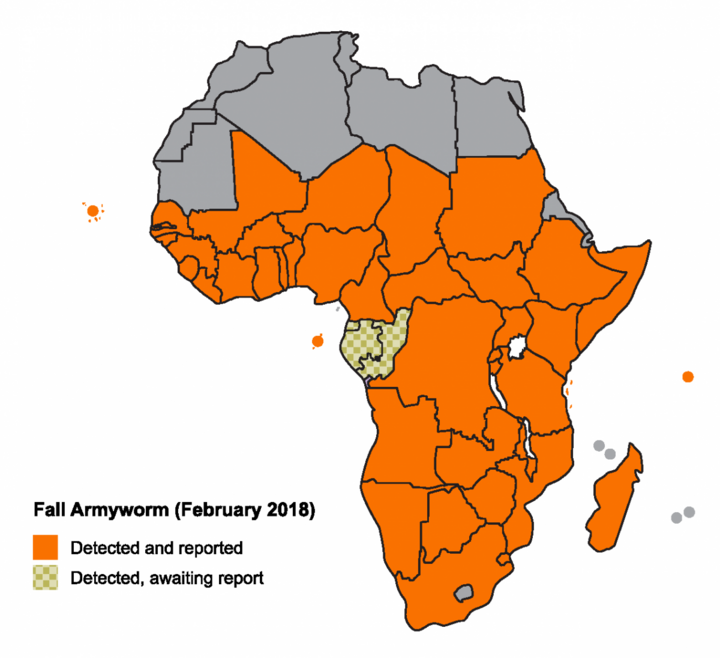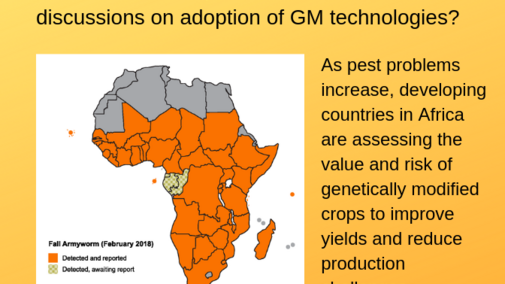
Fall Armyworm (FAW) is an insect pest many producers are familiar with in the United States. Unfortunately, farmers in Brazil and now in sub-Saharan Africa (48 of 51 countries; see Figure 1) also know first-hand the significant damage caused by this insect. Genetically modified (GM) crops, specifically Bacillus thuringiensis (Bt) maize, are a tool that farmers in sub-Saharan Africa could use to combat FAW. Currently, 13 countries in Africa are engaged in research and testing of GM crops, yet only one country, South Africa, has approved making Bt maize commercially available to farmers.
The anticipated world population growth emphasizes a need to produce more food on less land. Cutting-edge technologies, including genetic engineering, can help to develop improved crop varieties and protect natural resources. Many producers in the U.S. readily know the benefits of growing GM crops. In many parts of the world, in spite of the potential for GM crops to make crop production more efficient, they remain a polarizing issue due to safety concerns.
Providing policy makers and the public with information about how GM crops are evaluated can be a helpful step to improve acceptance. A new article in the journal Global Food Security, Risks and opportunities of GM crops: Bt maize example, provides an overview of the risk assessment process. The safety of Bt proteins is used as an example for how risk assessment is applied to GM crops. Risks associated with GM crops have proven to be low to non-existent. Developing countries would benefit from GM technologies as one tool to improve crop yields and reduce production challenges. Advocacy from producers in developed countries where the benefit of GM crops has been experienced can be an additional source of support for fellow farmers around the world. One way producers can support each other is through programs like the Farmer-to-Farmer program.

